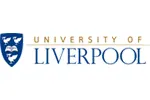

the United Kingdom
University of Liverpool| The award | How you will study | Study duration | Course start | Domestic course fees | International course fees |
|---|---|---|---|---|---|
| MRes | Full-time | 1 year | September | GBP 5135 per year | GBP 15251 per year |
The MRes programme in Simulation in Aerospace Engineering is designed for engineering and science graduates who want to specialise in aerospace simulation techniques and research methods.
You'll develop an advanced knowledge of key aerospace engineering simulation techniques including:-
We'll train you in a range of commercial packages and state-of-the art facilities for parallel computing, piloted flight simulation, and wind-tunnel experiments.
You'll also gain advanced research skills which will be especially valuable if you want to pursue a PhD or work in aerospace R&D, within industry or academia.
On graduation you'll have gained valuable practical experience of analysing modern aircraft systems using simulation, equipping you perfectly for a career in research centres and the aerospace industry.
The MRes programme in Simulation in Aerospace Engineering is a 12month, full-time programme, and starts in late September of each year. It consists of a taught component, which runs over two 12-week semesters from September until May, and a major research project, which is undertaken throughout the year.
In the taught part of the programme students take three compulsory modules (60 credits). Active learning is central to all modules. Students participate in lectures, seminars, tutorials and laboratory sessions, carry out individual and group project work, and use the University’s virtual learning environment. All modules are examined entirely by continuous assessment.
ProjectsThe project contributes 120 credits to the programme. It is based on a topic of industrial or scientific relevance, has a clear research orientation and can even be extended to become a suitable topic for a PhD. Students select a suitable research project early in the first semester and complete it by the end of the programme. A key element of the project work is active, problem-based learning. Students seek information and knowledge throughout their project, and exploit the taught modules to obtain skills and knowledge that can be applied to their work.
They are supported by their supervisor, and are examined by dissertation and presentation by one internal and one external examiner. The dissertation should provide evidence of original research, mastery of research methods, in-depth understanding of key simulation techniques, ability to apply simulation for solving engineering problems, and assessment of outcomes.
Below are some suggested courses at other providers that you may also be interested in:
Master in Fashion Direction, Brand & Business Management Master Degree
Milano Fashion Institute
Find out moreIf you do not meet the entry requirements for this course then consider one of these postgraduate preparation courses from another institution:
Graduate Diploma of Engineering (Electrical Systems)
Engineering Institute of Technology
Find out moreThere are 424 other courses listed from University of Liverpool. A selection of these are displayed below:
Advanced Chemical Sciences (Nanoscale with Interfacial Science) MRes, MSc
University of Liverpool
Find out moreAdvanced Chemical Sciences (Nanoscale with Materials Chemistry) MRes, MSc
University of Liverpool
Find out moreAdvanced Chemical Sciences (Organic and Biomolecular Chemistry) MRes, MSc
University of Liverpool
Find out moreAdvanced Chemical Sciences (Organic Chemistry with Catalysis) MRes, MSc
University of Liverpool
Find out moreFind out more about studying in the United Kingdom